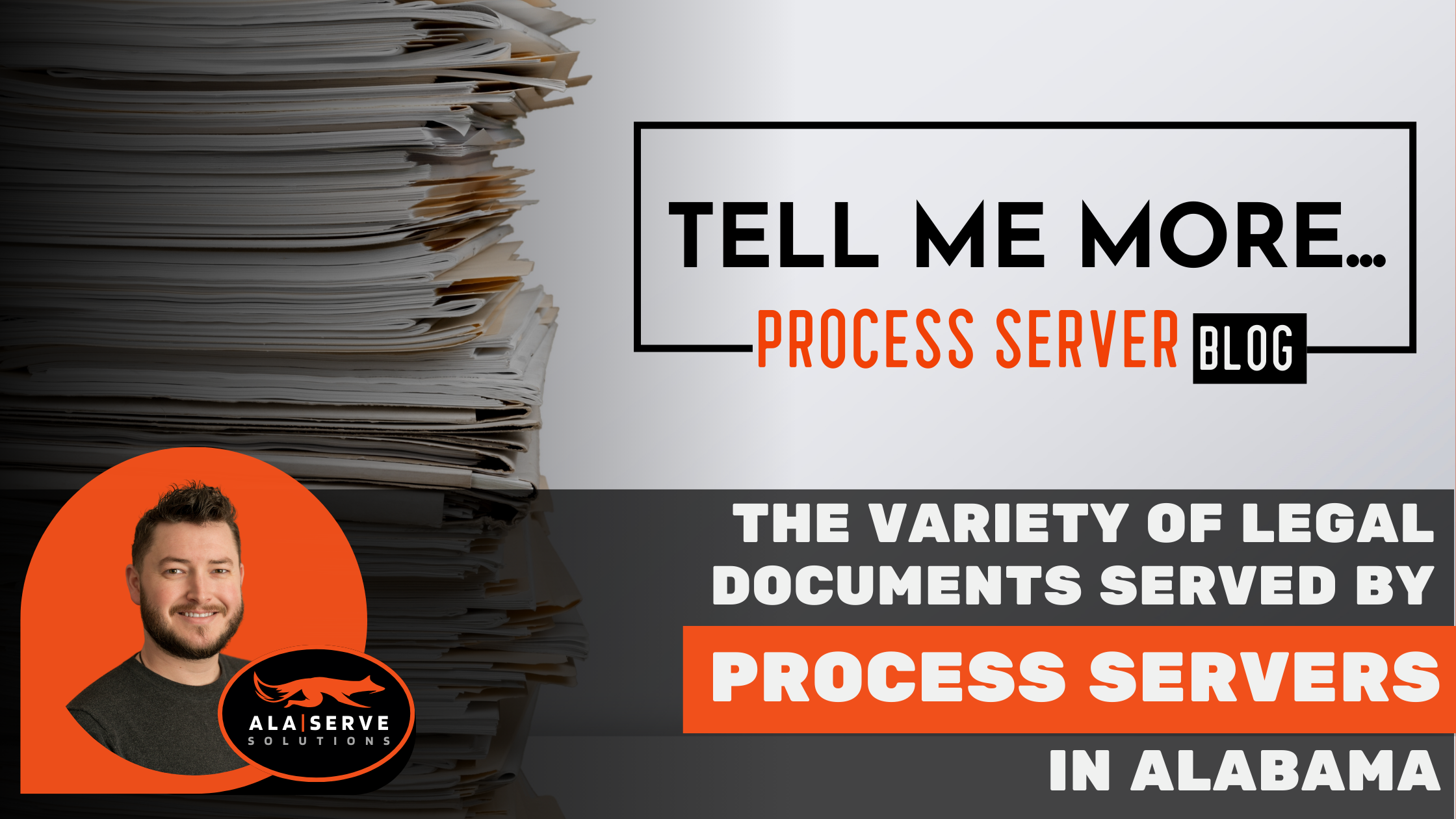The Variety of Legal Documents Served by Process Servers in Alabama
***Disclaimer: The content of this blog is for educational purposes only and should not be construed as legal advice. Consult a qualified attorney for personalized guidance.***
Process servers play a vital role in the legal system, ensuring that the right documents reach the right people at the right time. These individuals, who are often part of larger process serving agencies or work independently, deliver legal documents to individuals involved in legal proceedings, thereby enabling due process of law. In Alabama, process servers handle a variety of documents. This blog post will provide an overview of the different types of documents that process servers commonly serve in Alabama.
Summons and Complaints
Summons and complaints are perhaps the most common type of documents that process servers deliver. A summons is a legal document that notifies the defendant of a lawsuit being filed against them and requires their appearance in court. The complaint, on the other hand, describes the plaintiff's claims against the defendant. Together, these documents initiate a civil lawsuit and set the legal process in motion.
Subpoenas
Subpoenas are another type of legal document frequently served by process servers. These documents command a person to appear in court, often to give testimony or present evidence in a case. There are two types of subpoenas: subpoena ad testificandum, which orders a person to testify before the ordering authority, and subpoena duces tecum, which orders a person to bring physical evidence to the trial.
Writs
Writs are formal written orders issued by a body with administrative or judicial jurisdiction. They command the person to whom it is directed to perform, or refrain from performing, a specific act. Examples include writs of execution (orders to enforce a judgment), writs of garnishment (orders to withhold a person's property), and writs of habeas corpus (orders to bring a person before the court).
Eviction Notices
In cases involving landlord-tenant disputes, a process server may serve eviction notices. These are official notifications informing a tenant that they must vacate the property by a certain date. In Alabama, landlords must provide a written notice and give the tenant a chance to remedy the situation before proceeding with the eviction process.
Child Support and Custody Documents
Process servers are also involved in serving child support and custody documents, which are critical in family law cases. These documents may include orders to pay child support, modifications to child support orders, custody orders, and notices of hearings related to child support or custody.
Divorce Papers
When a marriage dissolves, one party must serve divorce papers to the other. These documents include the petition for divorce, summons, and any temporary orders regarding child custody, spousal support, or property division. In Alabama, if the respondent cannot be found or refuses to sign the papers, a process server can serve the documents.
Process servers serve an invaluable role in the legal system, ensuring that all parties in a lawsuit are properly notified and given the opportunity to respond. From summonses and complaints to eviction notices and divorce papers, process servers in Alabama handle a wide range of legal documents. Their work allows the wheels of justice to turn smoothly, upholding the principles of fairness and due process.

